News
-
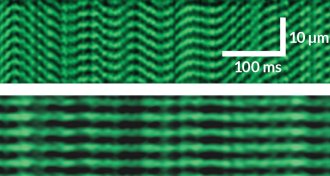 Neuroscience
NeuroscienceMini microscope is a window into live muscle tissue
A tiny microscope offers unprecedented views of live human muscles.
-
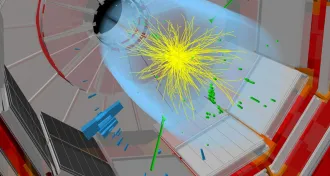 Particle Physics
Particle PhysicsLHC restart provides tantalizing hints of a possible new particle
The first comprehensive analyses of the recently restarted Large Hadron Collider yields no clear-cut discoveries but at least one intriguing hint of a new particle.
By Andrew Grant -
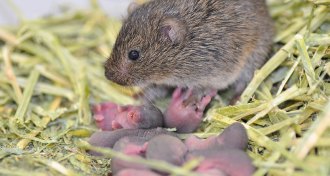 Animals
AnimalsForgetful male voles more likely to wander from mate
Poor memory linked to a hormone receptor in the brain could make male prairie voles more promiscuous.
-
 Climate
Climate195 nations approve historic climate accord
The Paris climate talks end with delegates from 195 nations releasing a hard-fought agreement to curb climate change and limit warming to 2 degrees Celsius.
-
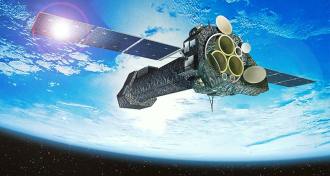 Cosmology
CosmologyDebate grows over whether X-rays are a sign of dark matter
The dwarf galaxy Draco, which is chock-full of dark matter, doesn’t emit a band of X-rays that researchers hoped were produced by the mysterious invisible stuff.
By Andrew Grant -
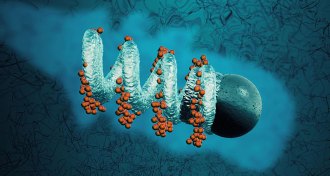 Life
LifeTo push through goo, use itty, bitty propellers
Newly designed micropropellers mimic bacteria to move through viscous surroundings.
-
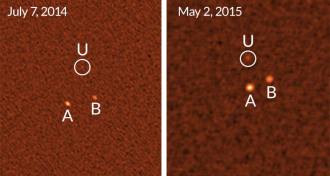 Planetary Science
Planetary ScienceIt’s a new planet! It’s an unknown star! It’s — oops!
A couple of unexpected wandering points of light in the sky could be new planets or even a dim star orbiting the sun, but researchers have plenty of reasons to be skeptical.
-
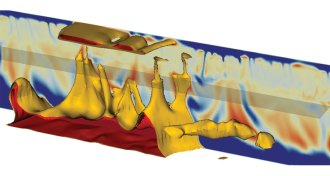 Earth
EarthGooey rock in mantle thickens 1,000 kilometers down
Gravitational tugs provide an unprecedented peek into the structure of Earth’s mantle and reveal a sudden increase in viscosity roughly 1,000 kilometers below ground.
-
 Chemistry
ChemistryElusive chemical reaction transition state captured
A new method provides a detailed look at the elusive transition state.
-
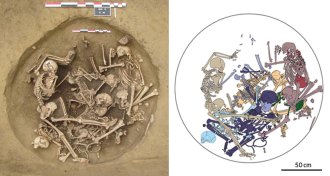 Archaeology
Archaeology6,000-year-old skeletons in French pit came from victims of violence
Human bones in a French pit recall lethal conflicts and limb lopping 6,000 years ago.
By Bruce Bower -
 Genetics
GeneticsLiberia’s Ebola outbreak largely traced to one source
Ebola’s spread and evolution in Liberia echoes patterns seen in Sierra Leone.
-
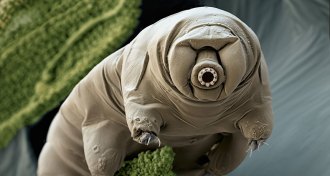 Animals
AnimalsWater bears’ genetic borrowing questioned
A new analysis of tardigrade DNA suggests that water bears don’t swap many genes with other organisms after all.